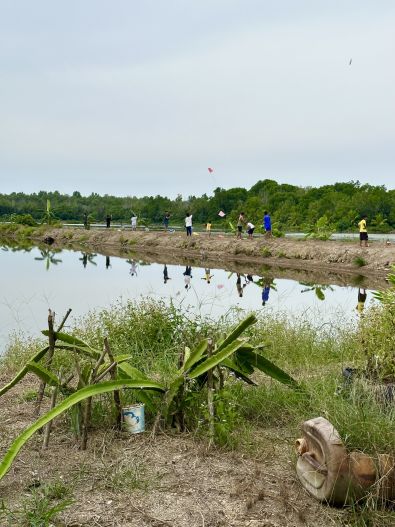Development, Law, and Economics
CRADLE Call for Papers

The World at a Turning Point: Oct. 3–5
Don't miss CRADLE's 2024 conference, "The World at a Turning Point: Cornell Conference on Development Economics and Law." Submissions due June 30.
Additional Information
The Global Financial Order is Under Threat

Eswar Prasad, SAP
Eswar Prasad, professor of economics and trade policy, co-hosts this podcast on Western capital, institutions, and payment networks.
Additional Information
The "Socialization of Investment" (Law and Economics Papers)

Robert Hockett in World in Focus
Robert Hockett recently published a paper, The "Socialization of Investment," in CRADLE's new open-access Law and Economics Papers series.
"This has been all about reclaiming public capital for ... investment that grows the Republic’s wealth. And the Republic’s wealth is just the Citizens’ wealth—our 'Commonwealth.' This is, of course, what we owe and are owed by one another. It’s literally what we owe to ourselves."
The paper aims to demystify economist John Maynard Keynes' General Theory by interpreting some "intriguing asides" he introduced when writing about investment and capital. Hockett analyzes "three provocative phrases seemingly alluding to a common contemporary prospect": public investment financed by public finance-capital.
In Hockett's view, these "throwaway lines" offer clues toward constructing "both a plausible model and a powerful brief that Keynes might have composed—and would surely have approved—for reforming contemporary finance in certain materially productive, hence socially salutary ways."
The paper ultimately outlines a Capital Commons model that suggests a pathway to socialize investment while being attentive to private sector and public sector advantages.
Hockett's paper is one of four working papers launching CRADLE's new open-access series. Read the Law and Economics Papers and find out how to submit your paper for consideration.
Robert Hockett is cofounder of Cornell Research Academy of Development, Law, and Economics (CRADLE), an interdisciplinary research initiative based at Einaudi.
Featured in World in Focus Briefs
Additional Information
Topic
- Development, Law, and Economics
- World in Focus
Professor Discusses Implications of Biden’s Push to Triple China Steel Tariffs

Eswar Prasad, SAP
Eswar Prasad, professor of international trade policy, joins Squawk Box to discuss the potential impact of Joe Biden’s push to triple tariffs on Chinese steel and aluminum.
Additional Information
Why Biden Wants to Raise Tariffs on Chinese Steel

Nancy Chau, CMSP, EAP, SAP
Allen Carlson, associate professor of government, and Nancy Chau, professor of economics, explain the rationale behind raising tariffs on Chinese steel.
Additional Information
Will China Flood the Globe with EVs, Green Tech? What’s Behind Latest US-China Trade Fight

Eswar Prasad, SAP
Eswar Prasad, professor of international trade policy and economics, talks about a concern that China is building up capacity in new tech sectors and how domestic demand in China could influence market exploration.
Additional Information
Farmer Innovations and Best Practices by Shifting Cultivators in Asia-Pacific

Featuring Carol J. Colfer
This book, the third of a series, shows how shifting cultivators, from the Himalayan foothills to the Pacific Islands, have devised ways to improve their farming systems. Using case studies collected over many years, it considers the importance of swidden agriculture to food security and livelihoods, and its environmental significance, across multiple cultures, forest and cropping systems. There is a particular focus on soil fertility and climate change challenges. It is a 'must read' for those who realize that if the lives of shifting cultivators are to be improved, then far more attention needs to be directed to the indigenous and often ingenious innovations that shifting cultivators have themselves been able to develop. Many of these innovations and best practices will have strong potential for extrapolation to shifting cultivators elsewhere and to farming systems in general.
Additional Information
What Is Insider Trading?

Robert Hockett, CRADLE
Robert Hockett, professor of law, explains what could happen when insider trading occurs too frequently.
Additional Information
Grad Student Grants Support Sustainability, Biodiversity

Congratulations to Tamar Law and Made Adityanandana!
Thirty-one graduate students across three colleges have been awarded research grants from the Cornell Atkinson Center for Sustainability. The grants provide support for up to two years to doctoral students whose research advances sustainable biodiversity, energy transitions, food security, human health or reducing climate risk.
Additional Information
With Russian Economy Far From Collapse, U.S. Opts for Tougher Punishment

Nicholas Mulder, IES
“This is the first geopolitical crisis without all of the major Asian economies on board. The West does not have decisive economic power anymore. India and China are enough to keep Russia afloat,” says Nicholas Mulder, professor of history.
